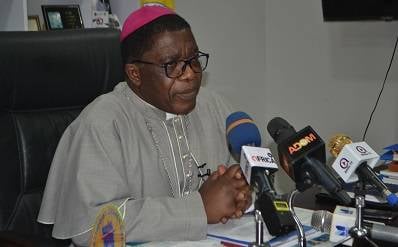The Presiding Bishop of the Methodist Church Ghana, Most Reverend Dr. Paul Kwabena Boafo, has taken a strong stance against illegal mining activities, commonly referred to as galamsey, condemning them as a serious injustice to the nation. During a church service in Accra on October 6 to inaugurate the 67th Legal Year of the Judiciary, Dr. Boafo articulated his concerns about the environmental degradation and moral implications associated with illegal mining. He voiced his view that those involved in galamsey are jeopardizing not only the nation’s natural resources but also the wellbeing of future generations. His condemnation highlights an urgent need for collective responsibility among citizens and leaders to address this pressing issue.
At the heart of Dr. Boafo’s message is a clarion call for the judiciary to act as champions of justice and equity in environmental matters. He underscored that when advocating for environmental justice, it is imperative to prioritize the care and sustainability of the environment, which serves as a vital resource for all citizens. He urged the members of the judiciary to recognize their pivotal role in enforcing laws aimed at protecting the nation’s natural heritage from actions that threaten its integrity. By doing so, they not only serve the present population but also safeguard the environment for future generations, fostering a culture of responsibility and stewardship.
Dr. Boafo expressed profound concern over the far-reaching consequences of galamsey, which has led to significant environmental destruction, including pollution of water bodies, deforestation, and the deterioration of arable land. He pointed out that these actions not only devastate the ecosystem but also impact public health and diminish agriculture’s viability, which is essential for economic stability. The Presiding Bishop’s remarks brought to light the reality that the fallout from illegal mining activities is not a temporary issue; rather, it is one that will have enduring effects that could persist for decades and affect the lives of countless individuals.
In emphasizing the moral dimensions of illegal mining, Dr. Boafo contended that it is not merely an environmental crisis but also a social one, where the actions of a few can adversely affect the entire nation. This perspective calls for a more holistic approach to tackling galamsey, where addressing illegal mining is intertwined with promoting moral behavior and communal responsibility. He challenged everyone, especially the judiciary and relevant stakeholders, to take definitive steps toward ensuring justice prevails in combating the galamsey threat, suggesting that the consequences of inaction could be devastating.
Dr. Boafo’s appeal for decisive action extends to all sectors of society, highlighting the need for a comprehensive strategy to address the galamsey menace. He underscored the vital role of collaboration among government, law enforcement, and environmental agencies in crafting solutions that not only penalize illegal mining activities but also focus on rehabilitation and reforestation efforts to restore degraded lands. By emphasizing the collective responsibility of all Ghanaians, he advocates for a united front against environmental degradation, one that recognizes the intrinsic value of Ghana’s rich natural heritage.
In closing, Dr. Boafo’s statements serve as a poignant reminder of the interconnectedness of environmental stewardship and social justice. He posits that ensuring ecological balance is fundamental to achieving a just society, where the rights of all citizens, present and future, are protected. His call to action challenges both individuals and institutions to take a stand against illegal mining and work persistently toward restoring the nation’s environmental integrity. As Ghana continues to grapple with the repercussions of galamsey, the Presiding Bishop’s remarks underscore the urgent need for justice, equity, and moral responsibility in safeguarding the nation’s future.














